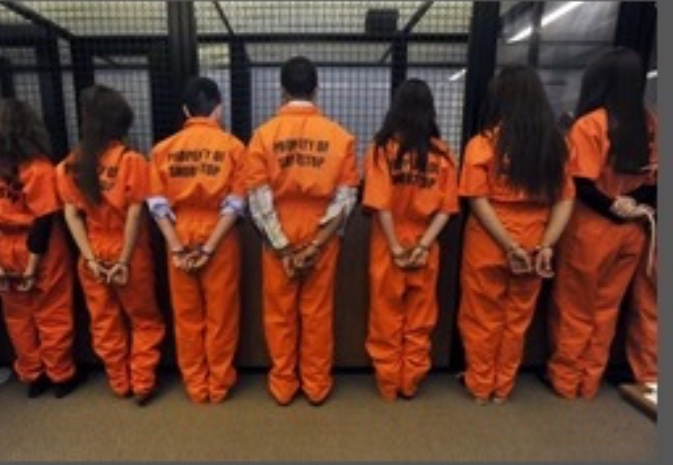Legal system addresses minor’s mental health by trying them as adults..um What?!
Against Minors being tried as adults
March 19, 2018
Although certain states have specific guidelines of when and when not try a minor as an adult, all states should try juveniles as minors regardless of their crime.
A big part of who people are, is how they are raised and the things they grow up with.
At 16; with three home burglaries, three robberies, and two counts of rape it is clear that Morris Kent is not your everyday 16-year-old. Morris continuously repeats his criminal actions and keeps going in and out of juvy by the order of the court and the state. However are they the ones preventing Morris from getting the help he needs?
In court Morris’ mental health was failed to be recognized and taken in consideration for his actions after the court pushed it under the carpet and tried him as an adult.
Therefore is it the kids that are the problem or our legal system?
Some may argue that minors like Morris should be tried as an adult to get justice for the crimes they have committed and to not be let off the hook yet again.
However the minors who serve their sentences in juvenile detention rather than adult prison are essentially not “let off the hook”. It’s the legal system that fails to take into account the mental health of minors that let themselves off the hook for not supplying the help that these minors need.
By addressing minors mental health, it could potentially prevent someone like Morris to be behind bars again. According to “Bureau of Justice Statistics”, an estimated two-thirds of Juveniles who get arrested, end up getting arrested again. So why cause damage and pain and tax dollars being spent to send someone to jail when all they might need is some help and for someone to help turn their life around?
One way the state could potentially prevent juveniles from preventing violent or serious crimes is to keep tabs on them. By looking into minors who have a long track record of minor offenses and keeping small tabs on them, by having home visits to make sure their parental guardians are not provoking reckless behavior or having a mental health screening that assess their mental health could keep these minors on the right track and prevent them from escalating to the point where they cause serious damage.
For some cases like Philip Chism, at 14, for committing murder and rape should be placed in juvenile detention until they reach 18, and then serve the rest of their sentence in adult prison, rather than automatically getting tried at adult court.
What many don’t know is that Chism had serious mental health issues, which helped provoke his actions against Colleen Ritzer. Although any crime should not be tolerated regardless of circumstance on any level, especially murder and rape, juveniles still should be allowed to serve their sentences in juvenile court until they reach 18, and then be transferred over to adult prison. Here’s why, Youth are also five times more likely to experience sexual assault in adult prisons versus juvenile facilities, according to the “Equal Justice Initiative”, reported in article by the Huffington Post.
In addition to minors being more vulnerable to sexual assault and abuse in adult prison, programs in adult prison are harder for minors who are still growing and developing, end up not having the knowledge or understanding to partake in these, which only makes living out their sentence even harder.
Another jarring problem in the legal system is the equality of sentencing when it comes to trying juveniles as adults. As reported in a national study, by, “ Amnesty International and Human Rights Watch “, Nationwide, black youth receive life sentence without parole sentences at a rate estimated to be ten times greater than that of white youth.
Therefore when it comes to trying minors as adults, specific circumstances should be taken into account such as mental health, in order to justicefully sentence the individual, and race should not be one.



